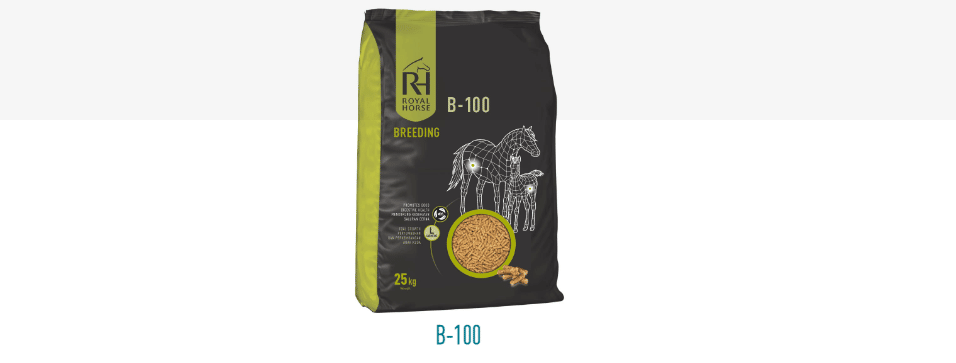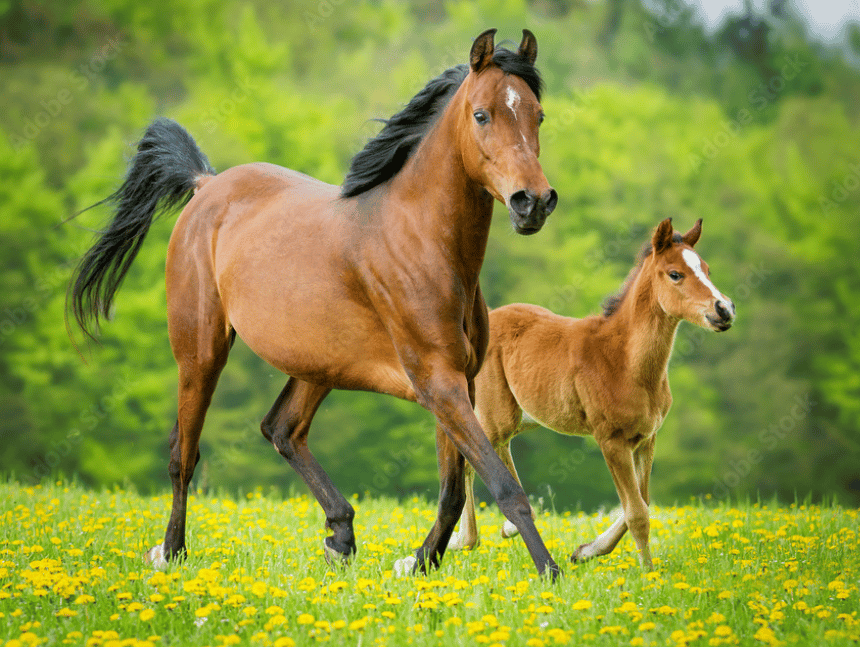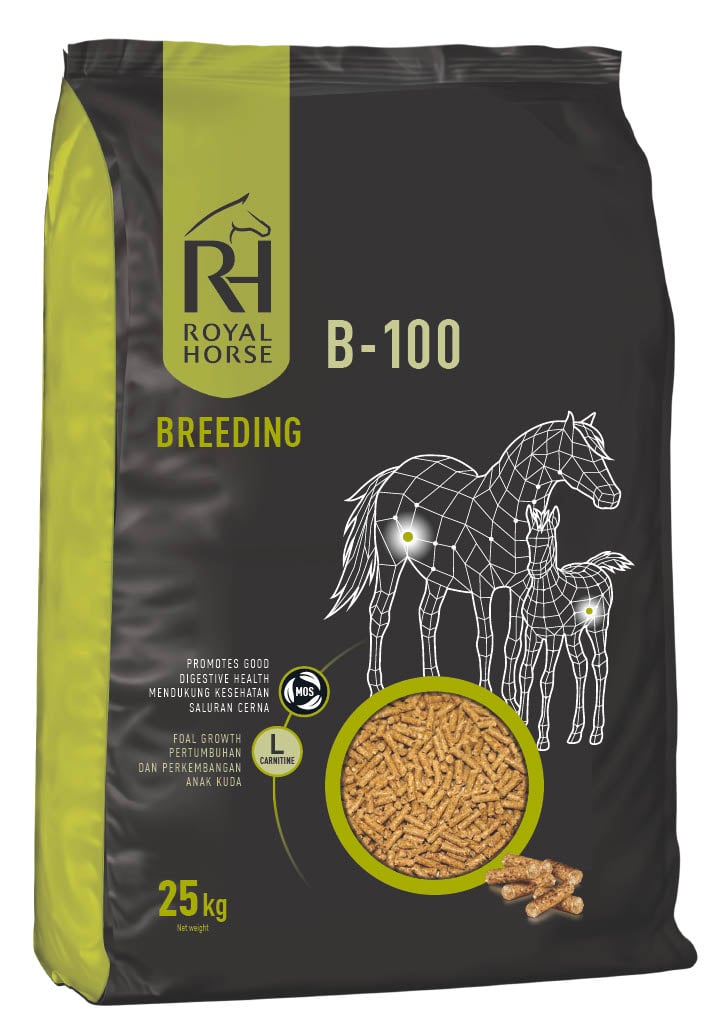Breeding horses have very specific needs, whether it is the brood mare, the stallion or the foal. For a foal in good shape, it is necessary that the brood mare is also in good health in order to give him all the vitamins he will need to grow up. The stallion must also be the object of a very particular attention during the period of breeding because his food needs evolve a lot at this period. This is why Royal Horse has developed the B range, in the form of pellets or flakes, which will allow each one to be in the best shape.
What are the food needs of the stallion in period of breeding?
The stallion’s diet differs from that of other horses only during the breeding period. At that time, he will have the same dietary needs as a brood mare in late pregnancy. The stallion’s diet will begin to change 15 days before the breeding season. The stallion’s dietary needs will depend on his physical and physiological characteristics (size, weight, age, lifestyle) but also on the type of riding that will be chosen, as it will require more effort for a stallion to interact within a herd of mares for example.
To guarantee optimal fertility, his diet must be perfectly balanced between proteins, vitamins, minerals and lipids. This is why Royal Horse has created a perfect mix of the different ingredients in the B100 horse feeds in order to obtain a balanced ration. Moreover, good digestive hygiene is important for stallions. This is why these feeds also contain prebiotics of the MOS type (Mannan-oligo-saccharides). These are bio-regulators of the intestinal flora that contribute to secure digestive transit. These foods also contain L-Carnitine which promotes fertility.

What are the nutritional needs of the brood mare?
Long before gestation, the mare’s diet has an influence on her fertility. It is therefore necessary, well before the mating, to offer her a balanced diet. Then, her food needs evolve especially at the end of gestation, from the 9th month. The foaling periods are often between January and May for racehorses, and a bit later for sport horses. This means that the second part of their gestation is often in winter, when the grass of the pastures is rather rare and poor from a nutritional point of view. That’s why they need to be fed a suitable diet that will allow them to finish their gestation serenely. Since foaling takes place in spring, the quality of the grass is better and allows them to ensure the lactation period in the best conditions. In addition to a quality forage, Royal Horse’s B range will be able to cover all its nutritional needs and also help it to produce a quality milk.
What are the food needs of the foal?
The first food which influences the development of the foal is the one of his mother in the uterus, then after in the milk. Foals are generally weaned between 5 and 7 months of age. Foals must then transition to an exclusively solid diet, so it is important that it is well balanced to meet all their needs (energy, proteins (amino acids), minerals including calcium and phosphorus, vitamins, trace elements …). Here again, Royal Horse’s B range can meet their nutritional needs and guarantee them an optimal growth.




